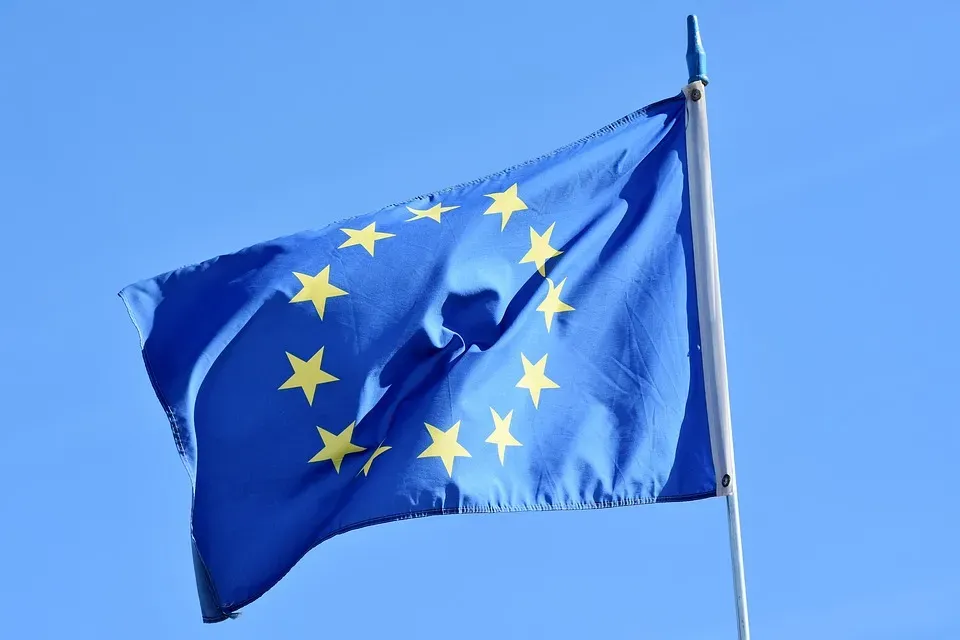
The first waves of the financial tsunami predicted to hit the world economy in 2019 are beginning to lap at the shores of an already structurally unsound trading block. EU member economies are starting to notice, with Italy in recession and Germany on the very knife edge of being forced to admit the same.
The effects upon Euro zone countries in particular could be catastrophic. As part of the monetary union, countries met with financially adverse conditions have less levers to pull in order to mitigate the effects of adverse conditions than other nations. Europe, and in particular, German banks, may be in the worst position of all to weather this incoming financial storm. Drastically undercapitalised, the German banking system is extremely vulnerable to a downturn. Critically exposed by the structural problems created by the Euro and the unsustainable nature of the financial union, it would not take a tsunami to push the financial system towards collapse, a reasonable wave such as might be seen on even a meditteraneanbeach might do it. However, a full on ‘tsunami’ is widely predicted and some of the evidence of it may be now becoming evident.
Italy is now officially in recession and questioning its support for the EU. The fourth largest contributor to the EU budget. Italy tried to create a budget to kick start their economy and restart the stalled engine of growth in the country. However, in response to this, the EU again used this opportunity to punish dissent among members and make matters worse, punishing Italy for breaking the same unsustainable financial rules which have been known to be problematic since the last financial crisis.
Potentially aggravating this situation, Italy may well be called upon to fill a portion of the massive deficit in the EU budget, one which will increase exponentially if the UK leaves the block without a deal as seems more and more likely.
Adding to the incoming list of financial disasters that are fermenting within the ideologically driven trade block, Germany came within 0.1 points of having to official declare itself in recession as quarter four figures from the German economy show 0% growth adding to fears as the German economy stalls entirely. Suffering from a very significant downturn in its formally strong manufacturing sector due to global factors, it is hard to see what Germany can do to change this. Meanwhile, the financial burden upon Germany caused by millions of dependant migrants increasing the strain upon social services.
For many years some analyst have been predicting that that the Euro zone and in particular the German financial system could collapse due to massive under capitalisation and the failure to deal with the systemic structural flaws within the monetary union and yet, no significant reforms have taken place. The most worrying observation is that this situation was widely predicted, yet no one changed course, no reform took place. Decisions continued to be made by the EU on ideological and political grounds, rather than sound financial ones.
Following the last financial crisis it pointed out by many commentators, that the EU banking system was massively undercapitalised. Particularly those in Germany and some other Euro zone countries who have some of the most undercapitalised major banks of any developed nation. Perhaps by as much as 1.5 Trillion according to some economists.
The failure to address structural problems and introduce reform has created conditions for the perfect storm across the Euro zone and as many have pointed out, there is a storm on the horizon, and it looks like a big one.
With Britain, the third largest contributor looking ever more likely to leave the EU without a deal and all of the other top five economies slowing, in or close to recession it seems very possible indeed that Brexit will be the existential threat that ends the Euro and perhaps the EU itself. Ironically were this to occur, it could end up being Britain that does more to save European economies, than the European Central Bank has managed to do since its inception.
Brexit could not come at a worse time for Germany in particular. Perhaps the most exposed EU member when it comes to Brexit, due to a very large trade deficit between Britain and Germany the effects of a no deal British exit would show first there. Perhaps worst of all, this has the potential to deal an very serious blow to the already slowing manufacturing sector which was previously such a big part of German export success.
Essentially shipping twice as much to the UK as the UK provides to Germany a disorderly exit from the EU without some sort of trade agreement has the potential to push Germany into recession as well as several others.
Facing being asked to plug the EU budget, suffering a recession following a serious downturn in its increasingly vulnerable manufacturing sector. It is hard to see a happy outcome for Germany in particular. Although the same may be said of France if present trends continue. Leaving the EU in an interesting situation, as 1 of the four largest contributors stop funding it entirely, and the other 3 are no longer able to fund the enormous contributions necessary to keep its projects running.
However, the UK economy did not go unscathed by the Q4 downturn either. Recording just 0.2% in Q4 of 2018 compared to one of the highest quarters of any of the leading contributors in 2018 of 0.6%. The top 4 contributors all seem to be in a similar position. However, the unique effect upon Germany and France in the event of a disorderly British exit could be catastrophic.
But, it is clear, that with numbers like this, even taking into account the concerns of a global slowdown, the European Union is a demonstrably stagnant trade block. If ever there was time for new thinking and looking further afield for growth, now would certainly be the time. Though undoubtedly, 10 years ago following the last crisis, might have been better.
In 2018, one or two economists have described the Euro Zone with comments such as ‘dead man walking’ and ‘dying? it is dead already, it just hasnt realised it yet’ and similar colourful descriptions. While it seemed somewhat unlikely, even in early, 2018. It has become more and more of an appropriate a turn of phrase.
